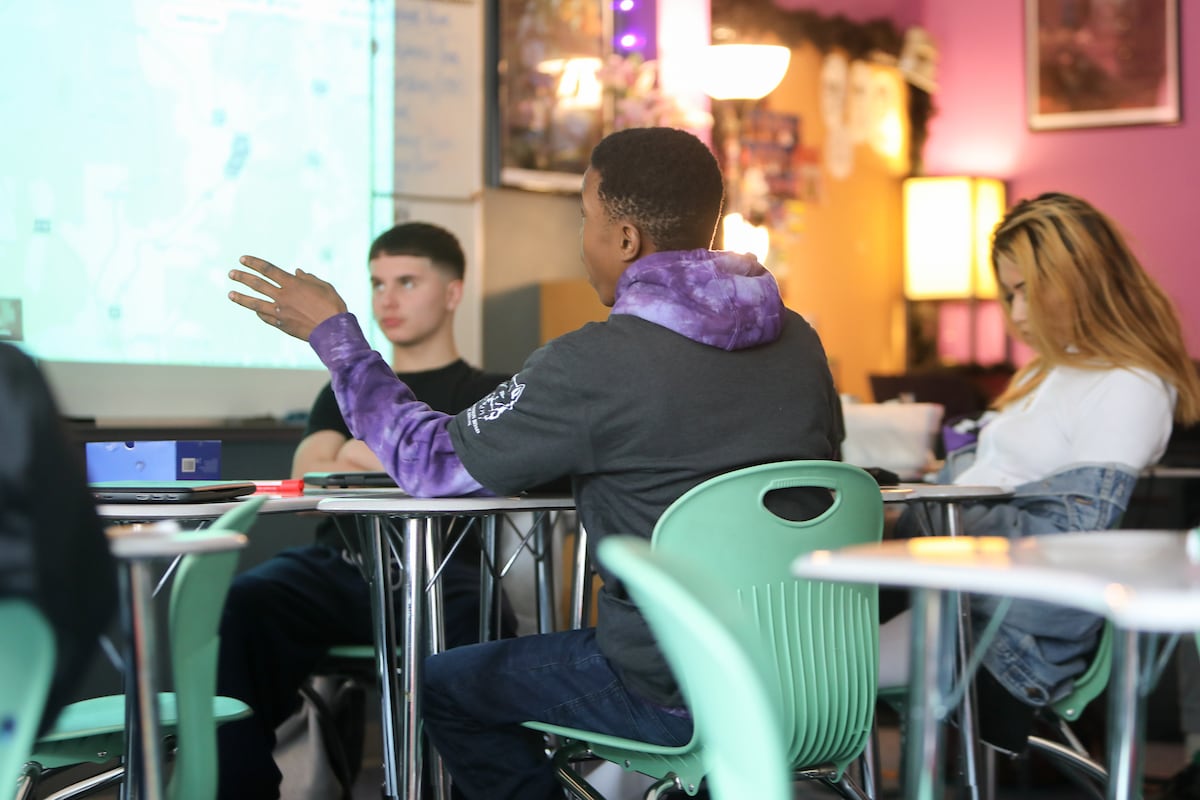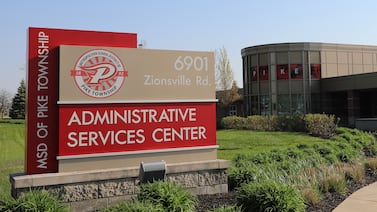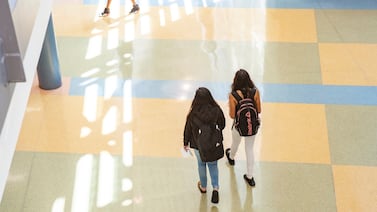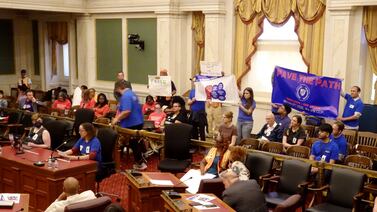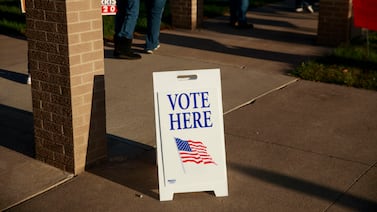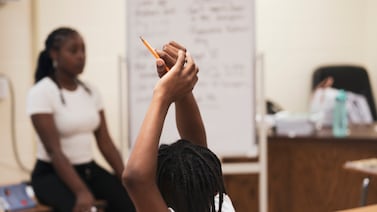Denver Public School students who take college-level courses unlock benefits beyond just exposure to rigorous class work, said Scott Burke, Abraham Lincoln High School assistant principal.
The classes allow them to see that they are college worthy.
“If we can show them early on that you can do this level of class, you belong in this classroom,” said Burke, who helps oversee a school that has struggled academically, “it really pays off.”
Leaders in Denver Public Schools are hopeful that a new partnership between the district and Community College of Denver could greatly increase student access to college-level English and math courses — and foster more of that sense of what could be possible for students.
The partnership will change how students can qualify to take college classes. The district will use a series of assignments and tests, called a capstone, that are meant to assess whether a student has mastered a subject. The capstone is built into required classwork, unlike a traditional project where students independently put together a project or research paper.
Until now, access to college-level courses in high school has depended on a standardized test or a grade point average. But research has shown bias in tests, and a GPA may not reflect a student’s capability or potential in a single subject.
“By providing our students another route to access these courses, we know that this is another opportunity for them to succeed,” said Marty Lessman, Denver Public Schools capstone manager.
Thanks to the partnership, through the successful completion of the capstone assignments, students will be able to potentially access Community College of Denver’s entry-level courses in English and math by their junior and senior year, respectively, Lessman said.
Before, students could only access those classes by taking advanced coursework, a standardized test or a high GPA.
The district and the community college together worked on changing course prerequisites for several years, said Kaylah Zelig, a dean at the school overseeing academic compliance and concurrent enrollment. The college has provided free college classes to students for more than a decade.
When it came to which students qualify for college coursework, Zelig said the college needed to focus more on equity.
Exposure to college-level coursework can improve outcomes such as attendance, high school graduation, college enrollment, and college completion, studies have shown.
But research shows students of color and from low-income backgrounds struggle on standardized tests used by many colleges and universities to determine college readiness and admissions. That applies to Lincoln, whose student body is more than 90% students of color and more than 95% from low-income families.
Zelig said the tests say more about what students can do during a three-hour test window rather than over the course of their high school career. Lessman also said that the use of GPAs to determine whether students are ready for college courses can also be thrown off by a rough semester or poor grades in other subjects.
By weighing capstone projects, the community college and district can assess how well students are doing in a specific subject over a long period of time, Zelig said.
It’s hard to say how many more students will be able to be eligible to take college-level English and math classes, said Bernard McCune, Denver schools senior executive director career and college success. He hopes all students will eventually qualify, he said.
Burke said he looks forward to seeing the excitement on students’ faces that understand they can excel in high school and beyond.
“We’re actually giving kids a genuine shot at access to those systems that have often been denied to them,” he said.


